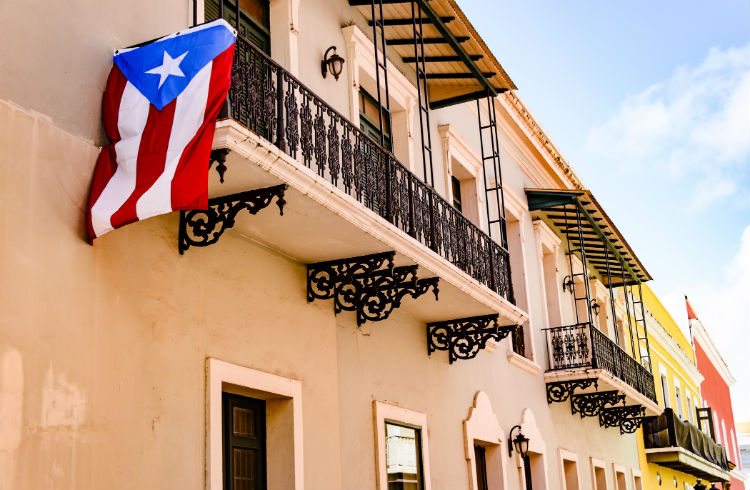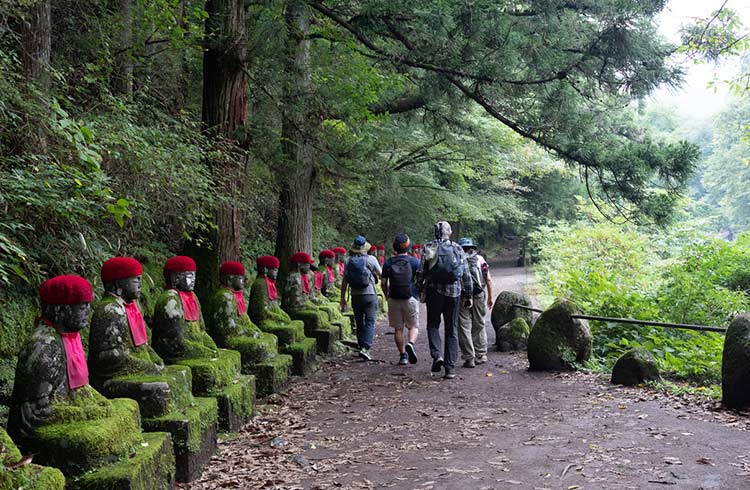Puerto Rico Travel Alerts and Warnings
What are the issues affecting travelers in Puerto Rico? Read the latest travel warnings and alerts.
 Photo © iStock/OGphoto
Photo © iStock/OGphoto
- 6.4 Earthquake strikes southwestern Puerto Rico - January 7, 2020
- Hurricane Dorian - August 28th, 2019
- Caribbean Hurricane Warnings
- How to Survive a Hurricane
- Am I Covered for a Hurricane?
- Hurricane Maria - September 22nd, 2017
- Hurricane Irma - September 7, 2017
6.4 Earthquake strikes southwestern Puerto Rico - 7 January 2020
The quake, which struck at 4:24am, has caused widespread power outages, seriously damaged homes and buildings, and left much of the island without running water. Several aftershocks, ranging between 4.5 and 5.8, have occurred. This follows a 5.8 earthquake on Monday, 6 January 2020, that caused the collapse of Punta Ventana, a natural rock archway that was a major tourist attraction.
Governor Vasquez has declared a state of emergency. The Caribbean is an active seismic zone, and further tremors are possible, as well as the potential for tsunamis. Be prepared for disruptions to travel plans, and contact your travel provider to see if schedules have changed.
What to do if you're in an earthquake
- Move to an open space away from hazards such as powerlines, buildings, trees and bridges
- Move away from any falling objects, crouch on the ground and cover your head
- Don't rush outside though – plenty of earthquake injuries happen when people fall while trying to run
- If you can't get outside safely, get under strong furniture or against an internal wall. Bathtubs or spaces behind furniture aren't the safest places – hiding under a bed or strong table is a better option, which will protect you from falling objects
- If you are in a wheelchair, stay away from any objects that could fall. Lock the wheels and cover your head with your arms
- If you are trapped under rubble, avoid wasting your energy or stirring up dust. Only call for help when you hear people nearby
- After the earthquake, get to your evacuation point. Try to get in touch with your embassy and emergency contact. Try not to waste your phone battery.
Hurricane Dorian - 28 August 2019
Tropical Storm Dorian has strengthened to a Category 1 hurricane, and is predicted to hit Puerto Rico late this afternoon. While the center of the hurricane may pass to the east of the island, heavy rain is predicted, creating a risk of floods or mudslides, and the storm may strain infrastructure that's still not fully recovered from Hurricane Maria. Always check the latest information from the National Hurricane Center, and keep an eye on local media for the latest updates.
Be aware that now this is a named hurricane and states of emergency have been declared in several places, it may not be possible to purchase travel insurance to cover this event. To discuss your coverage, please contact us at World Nomads.
Caribbean Hurricane Warnings
A tropical storm becomes a hurricane when wind speeds reach 74 mph or greater - Category 1.
- Category 2 wind speeds are 96 mph to 110 mph
- Category 3 - 111 mph to 129 mph
- Category 4 - 130 mph to 156 mph
- Category 5 - greater than 157 mph (note, there are no further categories)
A "watch" is issued when hurricane-force winds are possible in the named region (so maybe a hurricane is coming.)
A "warning" is issued when hurricane-force winds are expected in the named region (so a hurricane is definitely coming.)
How to Survive a Hurricane
The absolutely best way to survive a hurricane is to avoid one. Get away from it, but if you make the decision to leave make that decision early. Do not leave it until the last minute because you may find yourself caught without proper shelter.
If you decide to stay and "ride it out" it is advisable to get to an authorized shelter. The locations of these will be broadcast, or locals will know where they are. If there is no shelter, prepare to "shelter in place" in an internal room without windows.
Once a "storm watch" has been issued, make sure you are prepared in the event that the watch becomes a "warning."
- Fill the gas tank of your car.
- Check batteries in flashlights and radios.
- Have extra batteries on hand.
- Secure all doors and windows.
- Close shutters or board up the windows.
- Have extra supplies on hand such as non-perishable food, clean drinking water, a half-gallon of water per person/per day (enough for a couple of days), and prescription drugs.
During the storm
- Never go out during the storm. The winds can send flying debris into you causing injury and even death.
- Stay away from windows and doors.
- Keep on the alert for additional storm warnings. Hurricanes are known to spawn tornadoes, so be prepared to take cover if one should strike.
- While the storm is in progress, avoid using electrical appliances.
- Stay off the telephone.
- All pets should be secure in carriers. The storm will be a frightening experience for them as well, and they could injure themselves or you if they panic.
- Do not light candles or lanterns; they could get blown over causing a fire.
- The eye of the storm passing over could make you think the storm is over when the worst is still yet to come. Only use this calm in an extreme emergency to make critical repairs.
- Only after an official "all clear" has been issued is it safe to come out.
After the storm
- Beware of downed power lines and gas leaks.
- Stay away from heavily damaged areas.
- Listen to your radio for instructions.
Am I Covered for a Hurricane?
There may be cover for you if you purchased your policy prior to the storm or hurricane being declared. Check your policy or call our customer assistance teams if you are unsure.
Coverage may vary depending on your place of residence and the level of cover you have purchased, however GENERALLY the cover and benefits of Trip Cancellation or Trip Interruption may assist you. If regular carriage services to your destination have ceased for 24 hours or more (so you can't get there) you may be able to make a claim. Check with our customer assistance teams.
Post-Hurricane Maria
Since Hurricane Maria hit Puerto Rico, it has taken some time to get essential services up and running on the island. San Juan has mostly improved; however, many parts of the country are still without sanitation, telecommunications, and other services. Check with your government's travel advisory and Puerto Rico's tourism bureau for more information before you travel.
Hurricane Maria - 22 September 2017
Hurricane Maria made landfall on Puerto Rico on 20 September as a Category 4 storm, with winds up to 150 mph. The hurricane caused widespread devastation and left almost the entire island without power. It may be months before power is fully restored. Maria also brought nearly 40 inches of rain to some areas of the island, causing severe flooding. More rain is expected through the weekend. Always check the latest information from the National Hurricane Center, and keep an eye on local media for the latest updates.
Hurricane Irma - 7 September 2017
Category 5 Hurricane Irma passed north of Puerto Rico early this morning - the island was spared a direct hit, but a million people are currently without power. The storm is now heading towards Turks and Caicos, the Bahamas, and the US mainland. Keep an eye on local media for the latest updates.
Travel warnings have been issued for Antigua, Barbuda, Anguilla, Montserrat, St. Kitts, and Nevis, Saba, St. Eustatius, and Sint Maarten, British Virgin Islands, U.S. Virgin Islands, Puerto Rico, Vieques, and Culebra, the Dominican Republic from Cabo Engano to the northern border with Haiti, Guadeloupe, Southeastern Bahamas and the Turks and Caicos Islands.
The United States has declared states of emergency in Florida, Georgia, South Carolina, and Puerto Rico.
Along with extremely strong winds, Hurricane Irma is likely to create a storm surge of 11 feet or more, with large, breaking waves. Heavy rains could cause life-threating flash floods and mudslides.
Be aware that now this is a named hurricane and emergencies have been declared in several places it may not be possible to purchase travel insurance to cover this event. To discuss your coverage please contact us at World Nomads.
Before you buy a travel insurance policy, check your government travel warnings and health advice – there may be no travel insurance cover for locations with a government travel ban or health advice against travel.
Related articles
Simple and flexible travel insurance
You can buy at home or while traveling, and claim online from anywhere in the world. With 150+ adventure activities covered and 24/7 emergency assistance.
Get a quote
No Comments